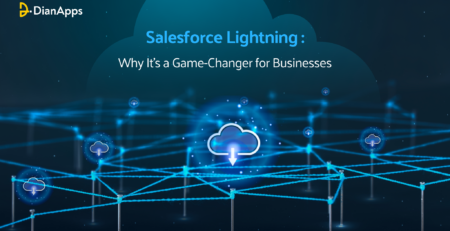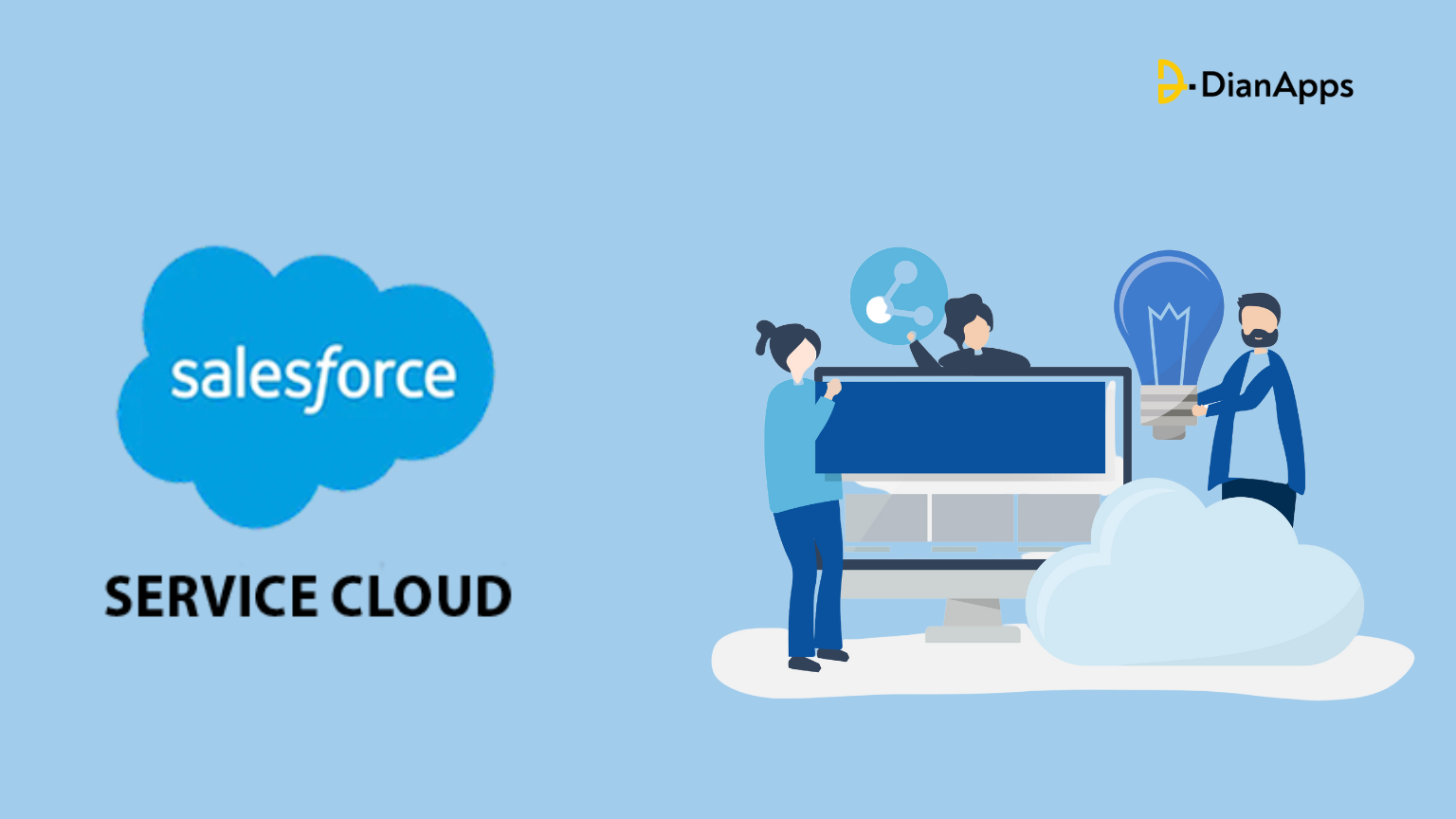Salesforce Sales Cloud Pricing & Features
What is Sales Cloud? How is it useful for your business? Salesforce Sales Cloud is a feature that comes with various tools and technologies applicable to an organization’s Sales team. These tools help boost a business workflow effectively and efficiently and incline business analysts to work on core leads, pipeline management, AI insights, connectivity channels, and sales cadences (to assist with outreach) more productively.
However, with so many Salesforce Sales Cloud features, businesses may find themselves in chaos and confusion in choosing the right set of features and knowing the correct Salesforce Sales Cloud pricing.
This blog is a cumulative perspective of how Salesforce Sales Cloud benefits businesses. While sharing the only pricing and features list needed to start pioneering the Salesforce Sales Cloud services into the business.
Key Role of Salesforce Sales Cloud in Business
- Supercharge your sales
- Provide outstanding solutions to customers
- Make communication better across every channel
- Create power-pack custom mobile apps and websites
- Get in touch with global businesses
- Get live access to any data or information you need
- Make smarter decisions in business
What’s Trending in Salesforce Sales Cloud in 2024?
As AI is taking over everything, Salesforce development services cannot go backward. In 2023, Sales leaders saw a high industry evolution in data analysis, automation, and better productivity for startups.
Businesses that have adopted artificial intelligence in their Sales operations observe a great conversion rate and improvements of 10%-30%. Look at the few top Sales trends for 2024 described in detail below:
1. The use of AI for sustainable growth
As per the State of Sales survey, operational effectiveness is one the most critical trends in Sales. Sales representatives often only spend 28% of their workweek on real sales, meaning they are spending 72% of their time on other administrative duties.
By taking care of these repetitive chores, generative AI in the sales cloud has the potential to save a lot of time, freeing up your staff to spend more time interacting with clients and closing deals.
Here’s an illustration of how AI might be useful: You may utilize Einstein Conversation Insights from Salesforce to share coachable moments with your sales representatives later on by having it automatically record and transcribe sales conversations, including video.
You won’t have to waste time listening to the full call because Einstein can highlight important parts. Then you may train your representatives to duplicate what functions and deal with what doesn’t.
2. Pioneering Human Interaction
Salespeople and executives have referred to the years 2010–2022 as the “golden age of sales.” Using tried-and-true procedures and tactics, such as demos, cold calls, templated emails, and alluring offers, businesses were able to spur development. Yet strategies need to adapt as well.
Currently, putting a high value on genuineness and interpersonal relationships will help you stand out from the competitors by fostering trust.
Salesforce developers can begin an interest in the characteristics and priorities of your target audience. Consider having your sales staff host a lunch and learn session for a select group of your clients.
Allow time for you and your team to ask questions after they guide your team through a few of the issues they face daily.
3. Welcome Data-driven Culture
To put it simply, businesses that utilize data to inform decisions have a 58% higher chance of exceeding sales objectives than those that don’t. Your team has a great chance to leverage the abundance of data at our disposal to make better decisions.
AI can assist automate a large portion of the data analysis process, allowing you to obtain the insights you want more quickly than before. Among many other things, sales executives may utilize sales data to improve decision-making, gain an understanding of sales and deal prospects, and hone sales growth strategy.
4. Adapting to Influencer Marketing
Whether you operate a B2B or B2C company, chances are good that your clients already follow influencers in your sector on social media. Influencer marketing has grown to be a $21 billion industry thanks to its widespread popularity.
It makes sense: collaborating with an influencer who is prepared to recommend your goods or services provides you greater credibility with followers who look up to and respect them, increasing the likelihood that they will think of you when it comes time to make a purchase.
Begin by being familiar with your clients’ online activity on various platforms, such as their opinion-expressing, help-seeking, and general conversation practices. You can discover influencers who are most likely to capture your customers’ attention if you have a better understanding of their characteristics and behavior.
What are the Salesforce Sales Cloud Features?
The Sales trends that we’ve already discussed above, share the same insights in Salesforce Sales Cloud Features along with a few more add-ons
1. Reports and Dashboards
The generation of dashboards and reports is supported in this section. Senior staff members generally use this section to investigate and ascertain whether campaigns are occurring on a regular basis, whether campaigns are gathering leads and accounts, whether good money is being made in response to marketing promotions, and so on.
2. Accounts Management
It is also possible that many parties, such as the finance and infrastructure teams, will be involved in the deal’s inception and conclusion in addition to the lead. Accounts are businesses or organizations that you will transact business with. For instance, DX is a company that is considering purchasing some of your goods. Consequently, you will now create an account using this business name. Once more, the procedure for establishing an account is rather comparable to that of generating leads and campaigns.
3. Campaign Management
Salesforce’s campaign management feature aids in forecasting a company’s marketing initiatives with the goal of boosting sales for its campaigns. Examples of campaign initiatives include telemarketing (calling clients), emails, seminars, events, and advertisements.
4. Cases Management
Following the completion of a commercial transaction, it is typical for the account to contact you with issues they are having with your goods. For instance, a laptop with defects or an operating system that is not set up correctly for laptops. Issues reported by clients or consumers are tracked and submitted using cases. The issue’s allocated account, the contact who submitted the complaint, its severity, and other factors are all taken into consideration.
5. Contacts Management
Along with creating an account, we also need to build up and maintain the relationships with the key players in your business agreement. The contacts can also be linked to an already-existing account. provide all client information, including past exchanges, correspondence, critical phone numbers, and emails.
6. Leads Management
Let’s say that your marketing promotion led to a few clients expressing interest as a result of your campaigning event. Assume, for instance, that you started a discount laptop campaign, and a few customers showed interest in the deal by registering their names to be contacted. In the Sales cloud, a lead is a potential customer who, because to campaigning or other personal reasons, has indicated interest in buying products or services from a business, even though they might not be entirely qualified to do so. They might be potential customers as the firm has never done business with them.
7. Opportunity Management
Opportunity management, which is really the name of the business deal, is what you do when the conversations with the account get to the point where you, as a product offering, feel it is time to build an opportunity for the business deal. Take “2000 Laptop Selling Deal,” for instance. We also need to mention where in its growth this possibility is offered.
And this brings us to knowing the Salesforce Sales Cloud Pricing
Edition of Salesforce Sales Cloud Pricing
The price of Salesforce varies significantly depending on your needs. Typical sales and customer service plans cost $25 per person per month, whereas marketing solutions like Salesforce Pardot can cost more than $15,000. The demands and scale of any firm will determine the monthly charges. The difference between these two estimations is obvious, thus the best course of action is to get a clear price quotation from Salesforce for the cost of Salesforce (or other suites).

The beginning costs of Salesforce may change according on the plans, or Clouds, that you select and the number of users you have.
Conclusion
Sales Cloud solutions help agents accomplish transactions by lowering duplications, streamlining processes, streamlining operations, enhancing communication, and providing information access.
Managers benefit from CRM software features that offer a unified view of history and status in addition to the ability to create workflows and approval processes that increase productivity.
DianApps a Salesforce development company can set better paths with the use of forecasting tools, analytics, and dashboards from the Sales Cloud.
Continue reading Sales Cloud Vs Service Cloud-Choose Your Salesforce Tools




